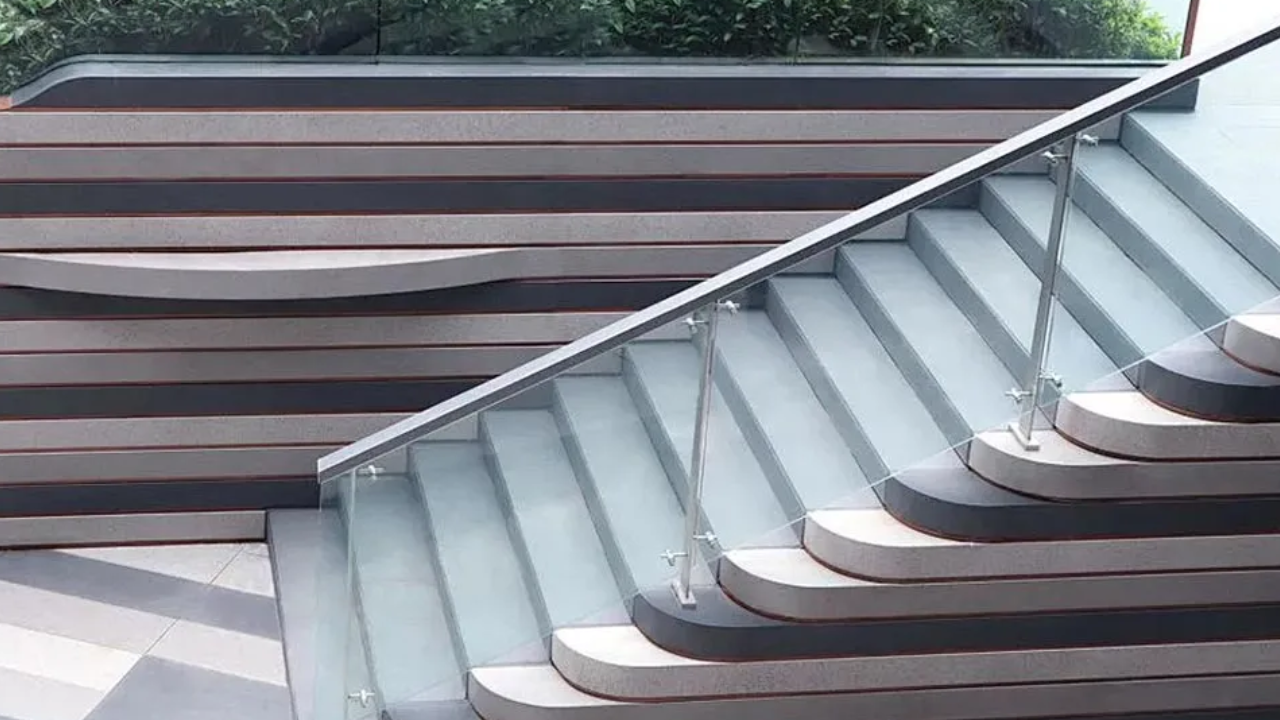Frameless glass balustrades provide a sleek, current aesthetic while presenting safety and transparency in architectural design. Generally constructed from toughened or tempered glass panels, they devise an open, unobtrusive barrier for stairs, balconies, terraces, and different accelerated areas. The absence of vertical posts or frames enhances visibility, maximizing natural light and views.
Installation often involves securing the glass panels with the use of chrome steel standoffs, base shoes, or channel structures, ensuring balance and sturdiness. This minimalist method enhances various architectural patterns, seamlessly integrating into both residential and commercial areas. With their clean lines and modern-day enchantment, frameless glass balustrades enhance the visible attraction of any surroundings whilst retaining protection standards.
Factors Affect the Frameless Glass Balustrades
The surroundings can significantly affect frameless glass balustrades in diverse ways, influencing their structural integrity, appearance, and toughness. Here's a breakdown of environmental elements that affect those architectural elements:
Weather situations
Extreme temperatures can affect the enlargement and contraction of glass, in addition to the substances used for mounting and guiding. In areas with huge temperature variations, together with wilderness climates or areas liable to freezing temperatures, thermal stress on the glass panels can lead to cracks or breakage over time.
High humidity levels and moisture exposure can encourage the rusting of metal hardware and fittings used in frameless glass balustrades. Corrosion is more likely to occur in coastal locations and areas with high rainfall, thus everyday renovations or the use of corrosion-resistant materials are necessary to stop deterioration.
Exposure to Wind and Weather
Exposure to wind and weather can pose enormous challenges for frameless glass balustrades. High wind masses, especially in open or extended spaces, can exert strain on the glass panels, main to deflection or structural failure if no longer effectively addressed. Additionally, prolonged exposure to UV radiation from daylight can degrade the optical readability and integrity of the glass over the years.
To mitigate these risks, thorough engineering evaluation, wind tunnel testing, and using UV-resistant coatings are important. Right installation techniques and anchoring structures are also vital to ensure the stableness and longevity of frameless glass balustrades in various climate conditions.
Environmental Hazards
Urban environments with a high level of air pollution or industrial emissions can deposit contaminants onto the surface of glass panels, affecting their look and readability. Ordinary cleaning and preservation are critical to put off dust, filth, and pollution which could be acquired on frameless glass balustrades, keeping their aesthetic attraction and functionality.
Frameless glass balustrades have to be designed and installed to resist ability impact from unintended collisions or vandalism. In excessive-visitors regions or public spaces, the chance of harm to glass panels is expanded, requiring the use of tempered or laminated glass for better impact resistance. Proper part protection and anchoring systems are also critical to prevent glass breakage or detachment inside the occasion of an impact.
Protection and Care
Regular protection is essential to ensure the longevity and performance of frameless glass balustrades. Cleaning the glass surfaces with slight detergent and water, alongside periodic inspections of hardware and fittings, can help perceive and address any problems before they expand. Prompt maintenance or replacements of broken components are important to hold the safety and structural integrity of the balustrades.
Putting in protecting movies or coatings on glass surfaces can assist minimize the effects of environmental elements such as UV radiation, moisture, and contaminants. Moreover, incorporating drainage systems and proper waterproofing information in the layout can prevent water infiltration and moisture-associated damage to the underlying structure.
Summary
The environment performs a critical position in the overall performance and sturdiness of frameless glass balustrades. Architects, engineers, and property owners must not forget climate conditions, publicity to wind and climate, environmental risks, and protection requirements when designing, specifying, and putting in those architectural capabilities. Utilizing addressing those elements proactively, frameless glass balustrades can hold their capability and aesthetic appeal for years to come.


